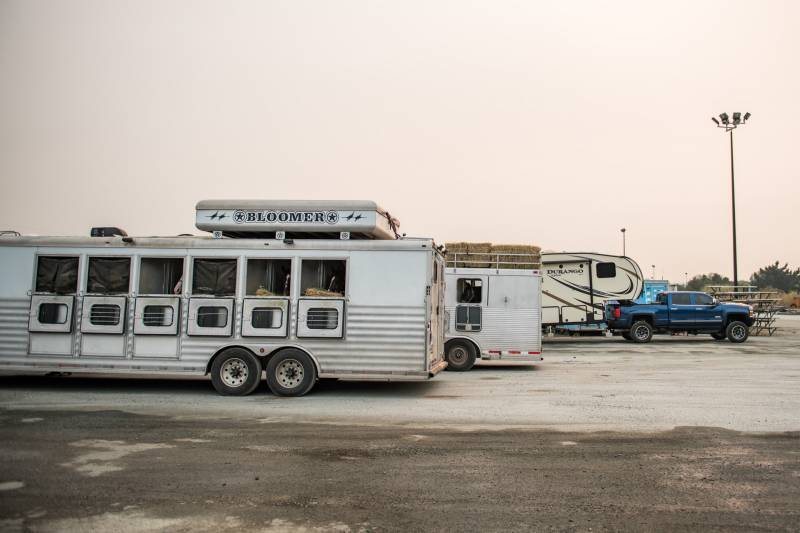“I know this fire was an anomaly, and I’m not trying to point fingers, but it really showed some holes,” said Sarah Johnson, who lives at the Emerald Hills Horse Ranch where DeAngelo boards her horses. It’s in Yolo County but borders Solano County.
Solano County sheriff’s Capt. Rustin Banks said his deputies warned people to flee by going door to door and using sirens, reverse 911 calls and alerts sent by email, text or phone calls.
He noted that the flames moved quickly and unexpectedly from Napa County and into neighboring Yolo and Solano counties. Fire roared through the outskirts of Winters and then south to Vacaville, prompting middle-of-the-night evacuations. Banks estimates Solano County has lost more than 200 homes.
“When the dust settles on this, we’re going to do an after-action report,” he said. “And notifications will be part of that. As always, if there’s a better way we could do something, we will adopt it.”
At the horse ranch, Johnson looked for details about the blazes in nearby Napa County but the Cal Fire website wouldn’t load and she couldn’t find information anywhere else. She went to bed, joking with her sister in Finland that she had “no idea where this fire is.”
Horse boarders called Johnson about the danger around midnight, giving her time to corral the animals for evacuation. By the time an evacuation advisory appeared by text at 2 a.m. Aug. 19, the sky was orange and smoky and the landscape dotted with fires.
Johnson said the notice went out way too late. She’s surveying neighbors in hopes of improving the system and said 43 of 59 people she talked to didn’t get an alert.
Yolo County Office of Emergency Services Manager Dana Carey said Friday that officials are looking into what happened but that a quick review indicates phone alerts may have been rejected as robocalls. She said more advance warning is always better, but the fire was fast.
California has made strides in beefing up its alert systems since the deadly 2017 blazes. Then-Gov. Jerry Brown signed legislation in 2018 establishing statewide protocols for alerting people to evacuate, mandating annual training for emergency managers and requiring that warnings be sent through landline and mobile phones as well as by radio, television and posts on electronic highway billboards.

